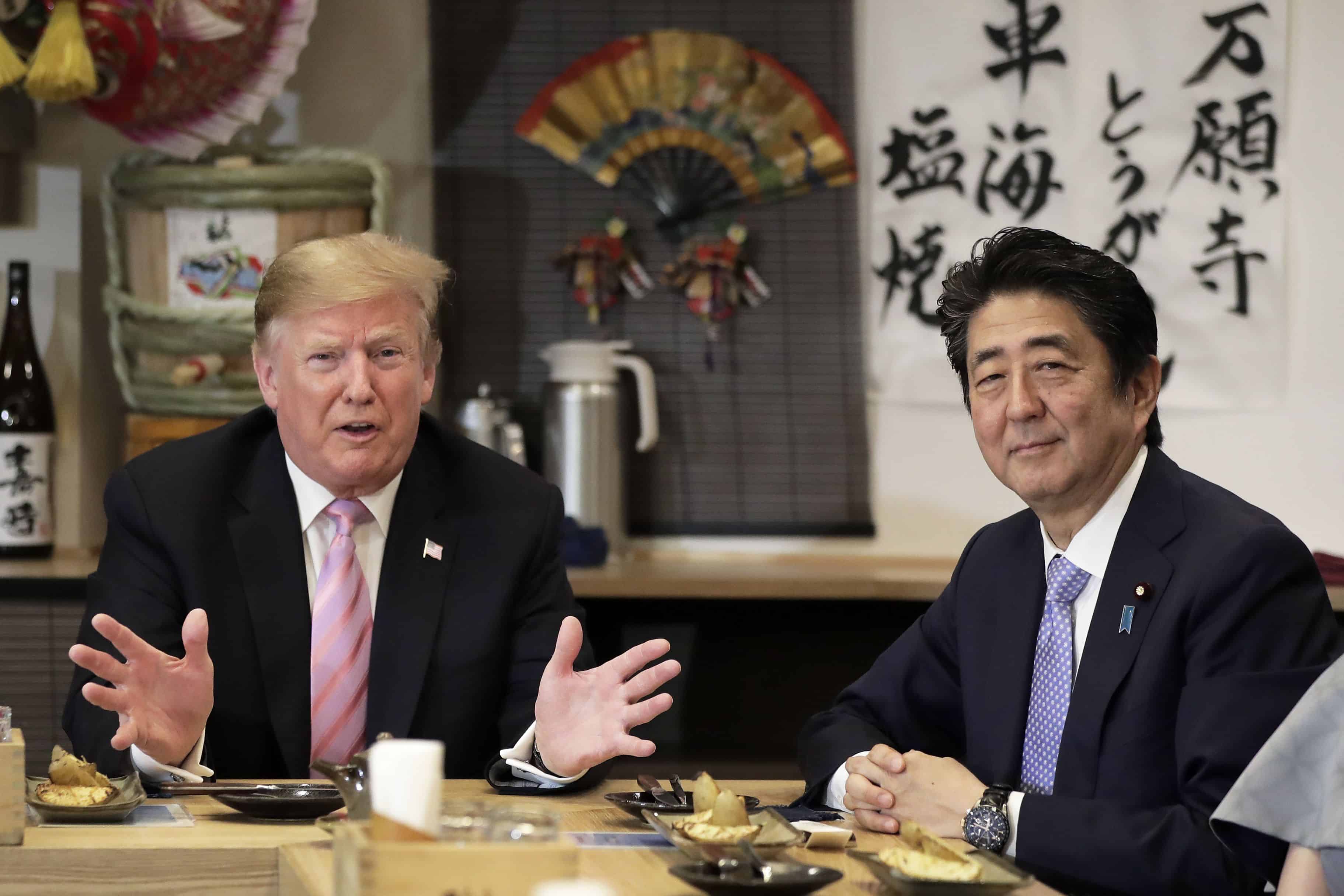
Shares in Asia were higher on Tuesday afternoon, as U.S. President Donald Trump concluded his state visit to Japan.
The Nikkei 225 in Japan added 0.42% in afternoon trade, while the Topix index rose 0.34%. Shares of semiconductor equipment manufacturer Tokyo Electron jumped more than 3% following the announcement of a share buyback, Reuters reported.
The MSCI Asia ex-Japan index rose 0.32% to 501.33, as of 12:11 p.m. HK/SIN.
In South Korea, the Kospi was gained 0.16%. Over in Australia, the ASX 200 advanced 0.48%.
Mainland Chinese stocks were higher in the afternoon, with the Shanghai composite gaining 0.89% and the Shenzhen component adding 0.83%. The Shenzhen composite rose 0.913%.
In Hong Kong, the Hang Seng index was 0.49% higher, as shares of Chinese tech giant Tencent jumped 1.61%.
Trump ended his four-day state visit to Japan on Tuesday, a day after his news conference with Japanese Prime Minister Shinzo Abe, as the two countries seek to hash out a trade deal.
Trump said his goal was to remove trade barriers so as to give U.S. exports a fair footing in Japan, but he also described the U.S. trade imbalance with Japan as “unbelievably large” and expressed hopes to address that.
“The issues that America has with China, it also has … in theory with Japan on tariffs although … as you can see from what Trump is saying, he obviously feels closer to Japan,” Hugh Young, head of Asia at Aberdeen Standard Investments, told CNBC on Tuesday.
The U.S. president’s visit to Japan comes amid a protracted trade war between Washington and Beijing, with China standing firm against the demands of the U.S. to change its state-run economy. Trump said Monday the U.S. is “not ready” to sign a deal with China yet.
“I think the market … has already started to price in that the tension would be protracted,” Eugenia Victorino, head of Asia strategy at SEB, told CNBC’s “Street Signs” on Tuesday.
“I would expect that there is very little downside with respect to the dollar-Asian currencies at this point” unless the U.S. proceeds to impose higher tariffs on all Chinese exports, she said. “Having said that, we are still very much lacking growth in the region which would really not prop up the assets.
China’s giant state-owned enterprises control strategic industries such as energy, telecommunications and defense. Since those companies benefit from favorable policies and subsidies, foreign companies complain of an unfair advantage. The escalating trade dispute between the U.S. and China has focused on allegations of the coerced surrender of proprietary technology and the trampling of intellectual property rights.
The U.S. dollar index, which tracks the greenback against a basket of its peers, was at 97.802, after seeing a high of 97.818 earlier, but still off levels above 98.1 seen last week.
The Japanese yen traded at 109.47 against the dollar after weakening from levels around 109.3 in the previous session. The Australian dollar changed hands at $0.6926 after touching an earlier low of $0.6914.
Oil prices were mixed in the afternoon of Asian trading hours, with the international benchmark Brent crude futures contract slipping 0.16% to $70.00 per barrel, while U.S. crude futures added 0.78% to $59.09 per barrel.

